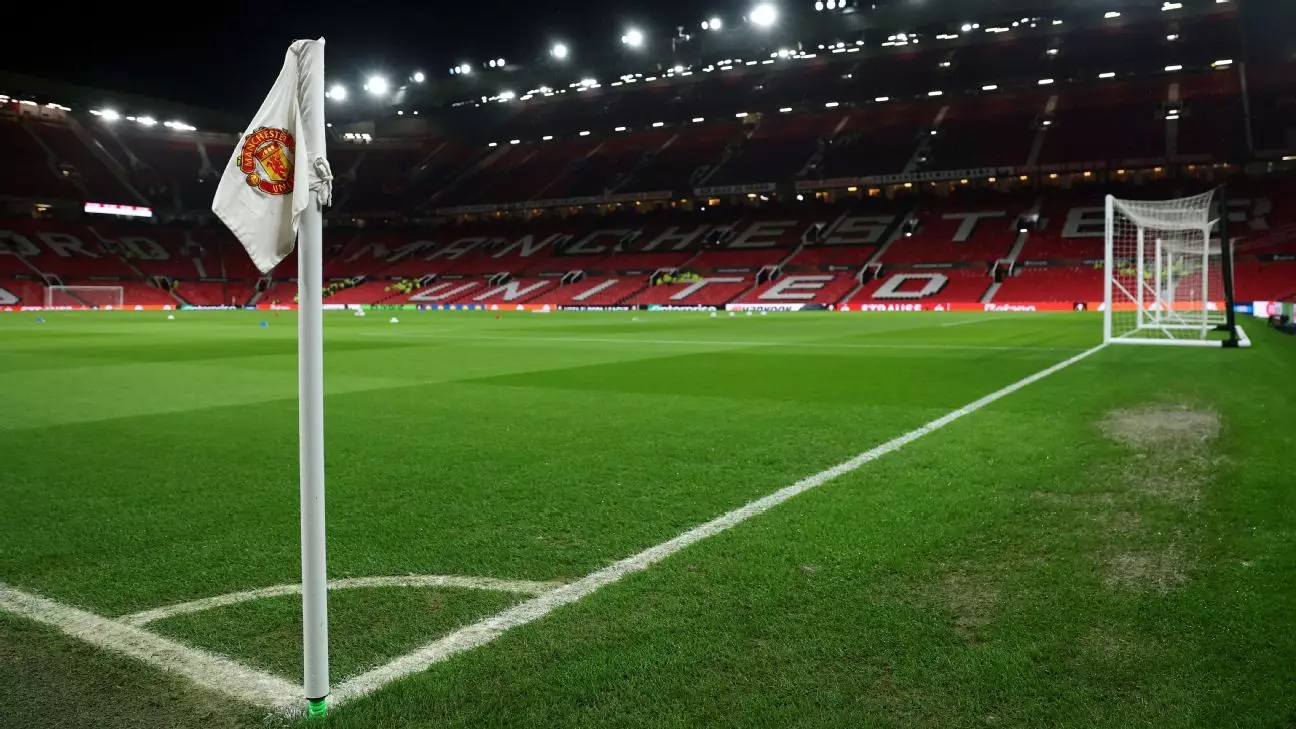In a striking announcement that has resonated deeply within the football community, Manchester United revealed it is facing potential breaches of the Premier League’s Profit and Sustainability Rules (PSR). The urgency of their situation was underscored in a recent letter to fans, sparking both concern and outrage, particularly regarding the escalating ticket prices. With reported pre-tax losses amounting to a staggering £312.9 million over the last three years, the historic club finds itself teetering on the brink of financial instability.
Manchester United’s financial predicament is alarming. The club’s admission of substantial yearly losses—exceeding £300 million—poses a direct threat to its competitiveness and legacy in English football. The letter to fans articulated a grim reality: if immediate measures are not taken, the club risks failing to meet the stringent requirements of the PSR, which permits a maximum loss of £105 million over a three-year span. Such a breach could invite severe penalties, including fines and points deductions, further complicating an already precarious situation.
This fiscal distress is not merely numbers on paper; it is a pressing concern that restricts the current head coach, Ruben Amorim, from bolstering the squad in the upcoming January transfer window. Given the ruthless nature of football, where financial health translates directly into on-field performance, United’s inability to invest in talent is a recipe for mediocrity at best and relegation at worst.
Adding fuel to the fire is the escalating discontent among the fanbase regarding the increased ticket prices. The decision to raise the lowest-priced tickets to £66, a significant jump from the previous cost of £40, has drawn sharp criticism. Supporters are understandably frustrated, especially in light of the club’s ongoing financial struggles and its inability to produce results on the pitch. The club’s statement acknowledging that it “does not expect fans to make up all the current shortfall” fails to placate those who believe the organization should be prioritizing long-term loyalty over short-term revenue.
This backlash illustrates a deep rift between the management and its supporters. For many, attending matches is not merely a leisure activity but a passionate commitment to a club that has historically symbolized success. Disregarding this loyalty for financial gain could have long-term consequences, alienating a fanbase that feels increasingly disenfranchised by their club’s direction.
As if the financial turmoil were not enough, Manchester United recently terminated the contract of manager Erik ten Hag just months after extending his tenure. This abrupt decision reflects an unsettling instability at the managerial level, further undermining the club’s credibility. Alongside this, the exit of sporting director Dan Ashworth, who departed less than six months into his role, adds to a chaotic climate of leadership changes that seems ill-suited for a club of United’s stature.
Such continuous turnover in leadership raises questions about the strategic vision guiding the club. A coherent plan is essential for transitioning from a state of decline to one of resurgence. Sadly, the current trajectory appears more reactive than proactive, with decisions being made in haste rather than as part of a well-thought-out strategy for revitalization.
For Manchester United, the situation is dire but not hopeless. To turn their fortunes around, the club must engage in a multilayered strategy aimed at improving financial health while restoring competitive integrity. This may involve a combination of offloading players, revisiting ticket pricing, and reinvesting saved resources back into the squad in a calculated manner.
Additionally, a renewed focus on establishing a stable leadership structure is critical. The club needs experienced professionals committed to building a coherent long-term vision that aligns both the club’s financial and competitive aspirations.
As Manchester United navigates these tumultuous waters, the pressure to adapt is mounting. The club stands at a crossroads, with its rich history and passionate fanbase at stake. The path it chooses will determine whether it can emerge from this crisis or if it will become a cautionary tale in one of football’s most storied franchises. Immediate, decisive action is not just preferred; it is essential for safeguarding the legacy and future of Manchester United.

